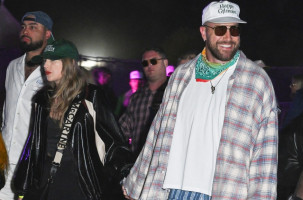Marshmello, a dance-music DJ spinning at clubs and festivals around the world this summer, expects to generate $20 million in touring revenue in 2017. So at the moment, he isn't interested in signing a major-label record contract. Instead, he's in talks with a handful of majors in hopes of putting out a single with each one.
"It's the Wild West today, because artists can do more on their own," says marshmello's attorney Joshua Binder, a partner at Davis Shapiro, whose other clients include Kendrick Lamar and Anthony "Top Dawg" Tiffith's Top Dawg Entertainment roster. "He doesn't have a record company trying to take credit for his success, [which allows him to say], 'Let's try dating before we get married.' "
With streaming spurring the music industry's growth to a gallop, labels and artists are venturing into new territory as they shake hands on more deals per month than some have seen in years. Terms range from now-standard 360 contracts and joint ventures to new types of licensing arrangements. Capitol Music Group this week is relaunching hip-hop's storied Priority Records as a way to bring on acts more quickly using wide-ranging deal options and services, from promotion to marketing. Warner Music Group (WMG) launched U.K. imprint Artists to Watch in March to snag streaming-first hits earlier, after rebooting Giant Records as a singles label in Spotify's home country, Sweden. Licensing deals, which give artists or their indie labels copyright ownership and at least half of the streaming royalties, are also surging with younger acts: RCA is pushing R&B singer-songwriter SZA's album Ctrl after temporarily licensing it from TDE in a deal that TDE co-president Terrence "Punch" Henderson called "unheard of."
"With streaming, now they can see the numbers, and it makes sense for them to bend on certain things more than before, because we actually do bring value," says Henderson. RCA is "one of the frontrunners in keeping up with the new ways."
While deal terms have always varied widely across the industry, the stakes are rising when it comes to deciding who should get what and how, as streaming promises bigger and steadier returns on the horizon.
Julian Petty, a partner at Nixon Peabody who represents Vince Staples and Childish Gambino, says that the frequency of new signings has nearly quadrupled of late, with labels offering concessions they didn't before. These include allowing artists to keep ownership of their existing mixtapes, leading to "greater income going directly into the artists' pocket." At the same time, says Petty, some labels are seeking concessions from acts like the ability to recoup radio, press and digital marketing expenses -- costs that labels traditionally cover. Majors have offered artists a wide range of options for years, with independent distribution arms that let acts choose services depending on their needs. Indie duo Macklemore & Ryan Lewis won four Grammys in 2014 thanks in part to distribution and promotion from WMG's Alternative Distribution Alliance. Star artists, meanwhile, have always had more leverage to negotiate higher royalty rates or shorter contracts as their fame grows, while plenty of today's talents are still willing to sign long-term deals at traditional royalty rates of less than 20 percent in exchange for a big advance and the ability to harness a major label's full power.
But as streaming and touring turbocharge the speed at which new acts can amass fans, labels are figuring out the smartest ways to offer what these rising stars want, and quickly. Brands are starting to beat labels to the punch, sometimes partnering with emerging artists before they even crack radio. Music sponsorships will top $1.5 billion this year, according to IEG, tripling in the 13 years since Marcie Allen founded music-sponsorship firm MAC Presents.
"It's 'How do I work with a brand to help me achieve my goal,' whatever that may be -- launch a tour, an album, a charity initiative," says Allen, who cut a deal for Khalid with Forever 21 before his RCA debut, American Teen, dropped in March.
Traditional 360 deals -- which give labels a cut from all of an act's revenue streams in exchange for the initial investment -- are still standard at majors, but aren't panning out exactly as hoped, sources tell Billboard. Some labels lack the infrastructure to enforce the deals and collect touring revenue, for example, while others are reluctant to risk legal and PR headaches to recover income they can't track.
While WMG's Artist Services department is one outfit providing touring, merch and marketing for artists signed to 360 deals, not all labels pony up these resources. "Asking for a share of gross live income without, for example, some guaranteed tour support, is difficult to accept," entertainment lawyer Robert Horsfall said in a speech earlier this year, after describing his exhaustion from slogging through a 74-page 360 contract.
In the long run, with the immediacy of the data it provides, streaming may end up favoring distributors with strong analytics by allowing "a more forecastable financial structure," says Ghazi Shami, whose EMPIRE Distribution has become known for its flexibility. "Streaming has been an enabler for companies like ourselves to say, 'This is where we are, and this is where I think we're going to be 12 to 18 months from now.' It's pretty empowering to know where you're going."
Additional reporting by Gail Mitchell and Dan Rys.
This story originally appeared in the July 1 issue of Billboard.








